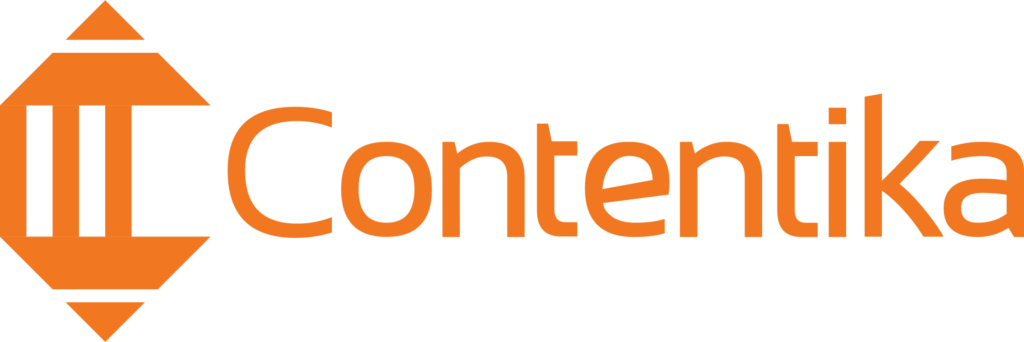Personalized marketing is revolutionizing the way organizations reach their target customers. Companies increase their chances of converting leads into sales by giving clients a more personalized experience by tailoring interactions to their individual demands.
McKinsey & Company, claims that personalized marketing can improve sales by 10% (or more!) and provide an ROI of up to 8x. To implement a successful personalized marketing strategy, it is essential to gain an in-depth understanding of customer profiles, interests, and preferences.
Understanding the market’s demographics and how customers engage with the brand online can help businesses stand out from competitors and create meaningful relationships with customers.
This article explores the concept of personalized marketing, its benefits, strategies, and examples.
What is Personalized Marketing?
Personalized marketing is the practice of customizing messaging and communication to better target, engage and reach out to customers and potential customers.
It all begins with gathering data such as customer names, preferences, and purchase history. This data is then used to craft personalized, bespoke messages that are tailored to fit the unique needs of an individual customer.
Personalized marketing entails far more than simply entering the customer’s name into the same marketing email that is sent to all of your customers. It’s all about getting the right word to the right person at the right time with the appropriate ideas.
This customization and attention to detail enable companies to build strong relationships with their target audience and convince them to make decisions that will bring mutual benefit.
By leveraging the power of personalized marketing, businesses can more easily provide customers with the information they need to make informed decisions, resulting in long-term value for both parties.
Benefits of Personalized Marketing
Personalized marketing offers a wide range of advantages for businesses and their customers. Here are some key benefits:
Increased Brand Loyalty
By delivering tailored content to customers, companies can create a connection with the customer that feels unique and special. This helps foster long-term relationships between customers and businesses.
Create Consistency Across Channels
By using customer data to customize messages, businesses can create a consistent experience across all channels. This helps customers feel that they are interacting with the same brand regardless of which channel they use.
Improved Customer Engagement
Personalized marketing strategies allow businesses to engage with their customers on a deeper level, creating an emotional connection that encourages loyalty and repeats purchases.
By personalizing interactions with customers through emails, website content, and other communications channels, businesses can create an engaging experience that resonates with their target audience.
Improved Visibility
Personalized marketing strategies help to boost visibility by allowing businesses to reach out directly to their target market.
Marketers can reach more people interested in their products and services by personalizing their communications and offerings to each customer’s unique preferences and interests.
Increased Conversion Rates
Personalizing content and offers is a great way to maximize conversions. By optimizing content for individual customers, companies can increase their chances of making a sale. Additionally, personalization can also lead to better customer retention rates and improved customer experience.
Strengthened Customer Relationships
Personalized marketing helps businesses build strong relationships with their target customers by understanding their needs and preferences. This makes it easier to customize offers and communications that will be well received by the customer.
Higher Response Rates
Personalized marketing strategies result in higher response rates as customers are more likely to respond to messages that are tailored specifically for them. According to recent Epsilon research, 80% of customers are more likely to make a purchase when companies provide them with personalized experiences.
Lower Acquisition Costs
By creating personalized messages, businesses can target their efforts and resources on those individuals who are most likely to be interested in what they have to offer. This helps lower the costs associated with acquiring new customers.
Challenges of Personalized Marketing
How to Find the Right Technology
One of the biggest problems with personalized marketing is that it relies on old technology that doesn’t work well in the mobile age. Collecting and automating data is crucial to the success of personalization activities, which is why a complex algorithm is required.
Even though it would be great if all marketers could easily find a smart personalization engine that works for them, this is not the case.
To overcome this challenge, you need to identify the right tools and technologies for your business and use them effectively in combination with robust data sets.
For example, you could use AI-driven technologies to identify customer segments and create targeted campaigns. You could also leverage automation tools to streamline processes and ensure that your personalized content is delivered on time.
Putting Smart Segmentation into Place
Smart segmentation involves grouping consumers based on their interests, preferences, purchasing behavior, and more.
For example, you can group shoppers who have made a purchase within the past month into one group, while those who haven’t purchased anything in six months could be grouped into another.
By creating these distinct groups, you can then personalize your messaging and content to each segment so that they are more likely to complete a purchase or engage with your business more regularly.
Smart segmentation across channels isn’t just for show; it improves performance. Unfortunately, many marketers still have trouble going beyond the most basic strategies for segmenting.
Creating the right segmentation requires extensive research and analysis of consumer behavior, which is essential for delivering the most relevant and personalized messages possible.
By going beyond basic segmentations, companies can identify and target more specific customer segments. This allows them to improve their marketing efforts by focusing on the right people at the right time.
Making a Single View of the Customer
By putting together their customer data into a single, unified customer profile, marketers can get a better idea of who their customers are by looking for similarities across channels.
But it might be hard for marketers to link data to specific customer profiles. For instance, if a customer interacts with the brand through multiple channels, it can be difficult to connect all of that data in one place.
Time and Resources
Companies need both the right software and a team of people who are willing to work hard. Putting together a customized marketing plan takes time and work, at a level which not every business is capable of providing.
Additionally, companies need to be sure that their team is knowledgeable enough about the technology and customer data.
Privacy Issues
Finally, customers are increasingly concerned about privacy and how companies use their data for personalized marketing strategies. Companies need to be careful about how they handle customer data when trying to collect data for personalization.
Strategies for Personalized Marketing
Now that you know the benefits and challenges of personalized marketing, let’s take a look at how companies can implement this strategy in their day-to-day operations.
1. Analyze Customer Data
The first step in any personalized marketing strategy is to analyze customer data. By understanding the demographics of your customers, you can create targeted campaigns that will be more effective.
You’ll need to collect and analyze data such as customer names, preferences, purchase history, and more.
When you have enough information on your contacts, you can categorize them as demographic information, levels of spending, product preferences, and purchasing habits.
Not all of these segments will be useful to your sales and marketing team, so consider which traits will allow you to send them relevant communications.
2. Identify Your Target Audience
Once you have data on your customers, it’s important to identify who your target audience is. Look for groups of prospective customers that share similar characteristics or interests and tailor your messaging to those specific audiences.
You may want to consider segmenting your existing customers by age, gender, location, or other factors.
3. Choose Where You’ll Personalize
When it comes to personalized marketing, you want to ensure your message reaches the right people. To do this, you’ll need to decide which channels you’re going to personalize.
Email marketing is one of the most popular channels for personalized marketing campaigns, but other options include one-to-one marketing, social media, website content, and even physical mail.
4. Create Different Versions of Your Message
Once you have identified your target audience and channels, you’ll need to create different versions of your message for each group. This means taking into consideration the various factors that might influence how your customers react to a particular message — such as age, gender, location, interests, and more.
Your goal is to create an individualized message that speaks directly to each person. This means you’ll need to test different messages to see which one resonates best with your target audience.
5. Automate Your Processes
Once you have created several versions of your messaging and identified the channels you will use, it’s essential to automate your processes. This will help ensure that your messages are sent out on time and that the right message gets to the right person.
Using a marketing automation platform can help you easily manage your campaigns, and track metrics such as open rates, deliverability, conversions, and more.
The Tools for Personalization
Analytics Platform
An analytics platform is an essential tool for personalized marketing. This software enables you to collect and analyze data from your customers so that you can better understand their needs and preferences.
Marketing Automation Platforms
A marketing automation platform provides the tools needed to automate your processes and manage campaigns more efficiently. You can use these platforms to create personalized emails and other communications, track customer engagement, measure campaign performance, and more.
Email Marketing Platforms
An email marketing platform makes it easier to manage your campaigns and create personalized emails for each customer. Some platforms offer drag-and-drop editors, templates, and other features to help you quickly create customized emails that will be more likely to convert.
Post-click Landing Page Platforms
Post-click landing page platforms are a great way to create personalized experiences for customers.
These platforms allow you to customize the copy, images, and layout of your pages based on specific customer needs. This helps ensure that each person visiting your site has a tailored experience that is more likely to lead to conversions.
Tag Management Platform
A tag management platform is a great way to track customer engagement and build more accurate customer profiles. This software helps you organize your data so that you can use it to create more personalized experiences for your customers.
Demand-side Platform
A demand-side platform (DSP) is a tool that enables you to target customers and create personalized ads on different digital channels. This software helps you identify customer segments, customize ads, and measure the performance of your campaigns.
Customer Relationship Management (CRM) Software
CRM software can help you organize customer data in one central system to make it easier to access when creating personalized messages or offers.
Examples of Personalized Marketing Campaigns
Custom Videos Messages
Custom videos are a great way to send personalized messages to your customers. By creating a custom video for each customer that highlights their unique interests and preferences, you can make an emotional connection that will encourage trust and loyalty.
Personalized Emails
Personalized emails are a great way to reach out directly to your customers and make them feel valued. You can customize emails to include a customer’s name, interests, recent purchases, and more. Emails with personalized subject lines are 26% more likely to be opened.
Social Media Posts
Social media is a powerful tool for personalized marketing. You can use it to create posts that are tailored to specific customers, such as offering exclusive discounts or promotions based on past purchases.
Product Recommendations
Product recommendations are another great way to use personalized marketing. By recommending products that your customers might be interested in, you can make sure they only see relevant and useful information. Ask anyone who has purchased something based on a brand’s suggestion of products “You Might Also Like.”
Targeted Digital Advertising
If you have access to customer data, you can create targeted ads that are tailored to each person’s needs. This allows you to show customers relevant offers that are more likely to lead to conversions and create highly personalized campaigns that will be more likely to resonate with your target customer.
Conclusion
Personalized marketing is the best way to connect with customers and deepen your brand relationships, both of which will increase customer retention and repeat business. It no longer makes sense to use one-size-fits-all strategies; personalizing messages and promotions to fit each customer based on their preferences is the most effective way to reach them.
With the right strategy, targeting customers with personalized content can lead to better sales, as well as improved customer satisfaction and loyalty. If you want your business to maximize its opportunities for success, it’s time to start thinking about personalized marketing.












